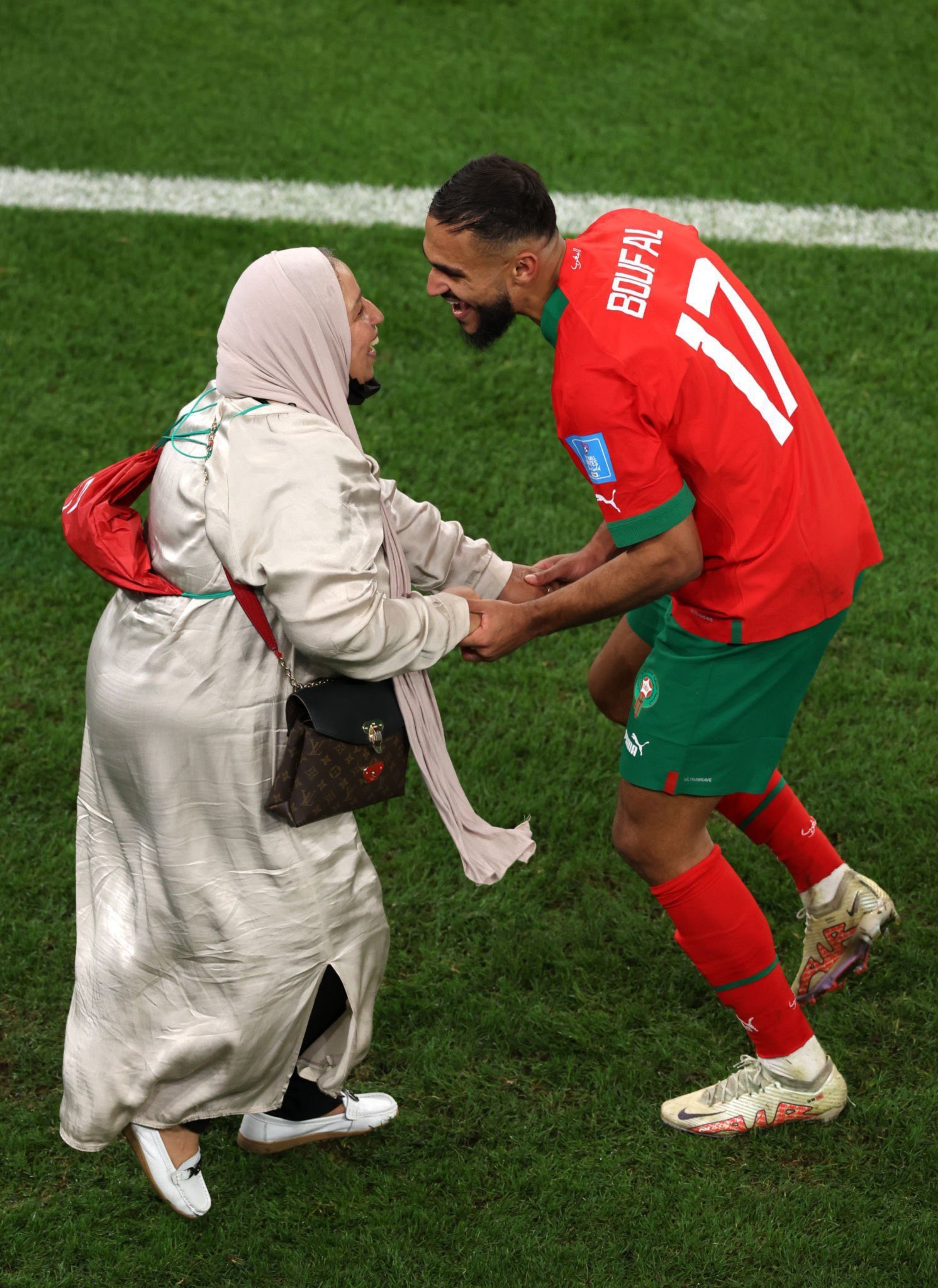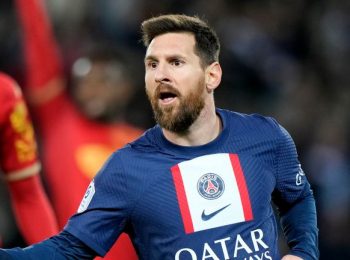“I love you mum.” These four words, written by Morocco’s Achraf Hakimi under an Instagram photo of his mother, Saida Mouh, kissing him on the cheek after his decisive penalty against Spain in the last-16 tie, will be one of the lasting images of Qatar’s World Cup.
Like many of the Morocco squad’s matriarchs, Mouh was no mere accessory to her son’s success. She helped to finance his football ambitions by cleaning houses while her husband worked as a street vendor in Madrid.
“Today, I fight every day for them,” Hakimi told Bundesliga.com in a previous interview. “They sacrificed themselves for me.”
“We often refer to Islamic hadith or saying that paradise is beneath the feet of your mother,” said Hanan Challouki, an Amazigh‑Moroccan fan born in Belgium.
Lina Duque, a Lebanese-Canadian woman whose 10‑year‑old daughter plays competitively, said: “This beautiful gesture by the Moroccan players sends a message to the world that these mums, Arab Muslim mums, belong there, at the heart of the World Cup celebrations.”
The Islamic reverence of mothers is embedded in Moroccan culture as well. “Parents’ blessings, also known as rdat lwalidin in Moroccan vernacular, is a very holy and sacred concept in Moroccan society,” said Med Mouad, a Morocco fan who lives in Agadir.
Across European capitals, and in London’s Edgware Road and Golborne Road, a broader Arab, African and even Muslim diaspora have spilled out on to the streets to celebrate Morocco’s historic victory as the first African and Arab team to reach the World Cup semi-finals.
Of Morocco’s 26-member squad, only 12 were born in Morocco according to a tally by Fifa. The others are members of the Moroccan diaspora born in several European countries and Canada.
Morocco’s ascent has disrupted more than just stereotypes around masculinity, Islam and even the idea that men’s football outside Europe and South America is sub‑par. Though neither Israel nor Palestine played in the Middle East’s first World Cup, the Palestinian flag has been a feature on and off the pitch.
Against the backdrop of an increasingly right-wing Israeli government and damning conclusions drawn from several international human rights organisations including Amnesty International, which called Israel’s actions against Palestinians apartheid, on the pitch a Palestinian flag was unfurled by the Morocco team after the victory against Portugal on Saturday.
Off the pitch, videos of Arab and English fans crying “Viva Palestina” or walking off from interviews with Israeli journalists have gone viral repeatedly, while Palestinian supporters of Morocco have spilled on to the streets across the occupied West Bank, Jerusalem and the Gaza Strip to celebrate the Atlas Lions’ achievements.
“To see the transnational unity and solidarity between Palestinians who ran to the street with Moroccan flags and in the diaspora, and the Moroccan team and their supporters also waving Palestinian flags, is just beautiful and not something I will forget in my lifetime,” said the Palestinian researcher Malaka Shwaikh, who watched the World Cup for the first time in Scotland with her parents, who recently visited from the Gaza Strip.
The idea to allow family members to travel on an all-inclusive trip with the Morocco squad to Doha came from the team’s manager, Walid Regragui, and the Royal Moroccan Football Federation president, Fouzi Lekjaa.
While it was a great morale‑building strategy, Ahlam Chemlali, a Danish‑Moroccan migration researcher at the Danish Institute for International Studies, said the viral images of Boufal, Hakimi and other Moroccan footballers celebrating with their parents also spoke to hostile border regimes and visa inequality in the west. “If the World Cup were held in a western country, they would probably not have had the same maternal support, as they instead would have been faced with borders and an arbitrary visa regime,” she said.
The visibility of women of colour in the football stands of Qatar’s World Cup, and visibly Muslim women in particular, has been surprising to some, but not to Shareen Qureshi, a self‑confessed “football junkie” who grew up in Newcastle in a mixed British and Bahraini family. “I grew up with a limited fanbase,” the 44‑year‑old said. “Two decades later, we see the World Cup taking place in the Middle East. We’re seeing more attendance of women from different backgrounds; it’s a universal gamechanger,” she said, although Qureshi added that not enough was being done to make football matches in the UK more inclusive for women of colour, and visibly-Muslim women.
Omar Saleem-Khan, an Arsenal season-ticket holder and England supporter from the UK who is of Indian and Pakistani origin, has attended four World Cup matches so far. The 26-year-old says the crowds in Doha are very different to what he has seen in the past.
“It really just shows how the passion for football is not limited to the west and clubs that are in the Champions League, or American teams,” Saleem-Khan said. “Football belongs to the world.”
Courtesy GN & M
























